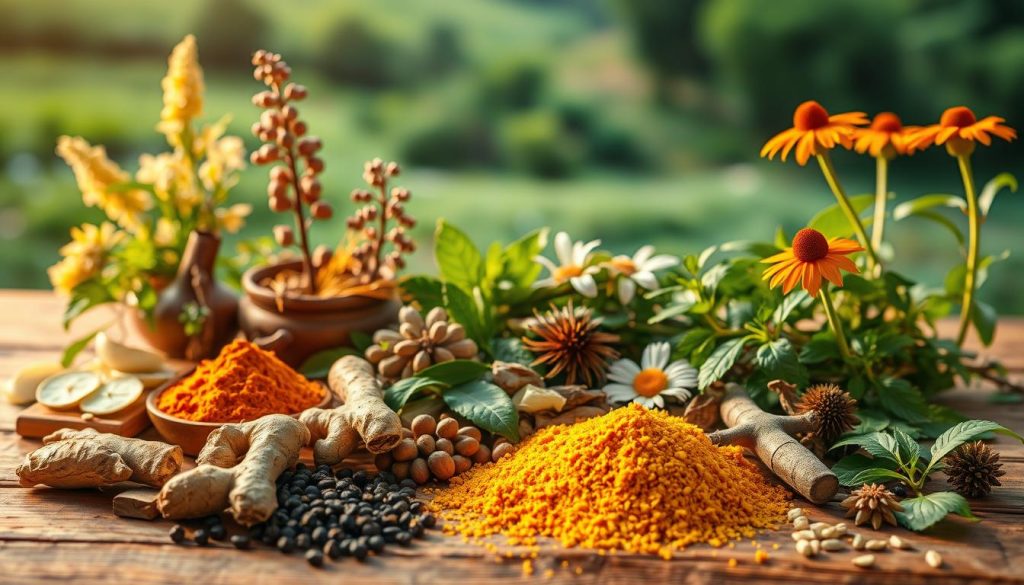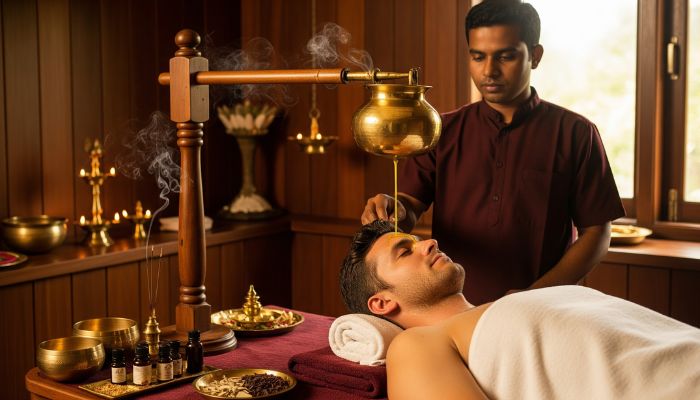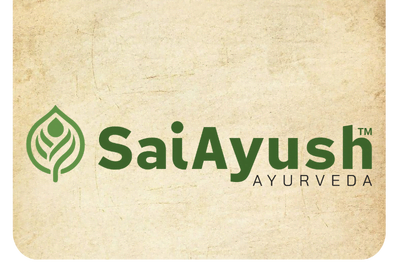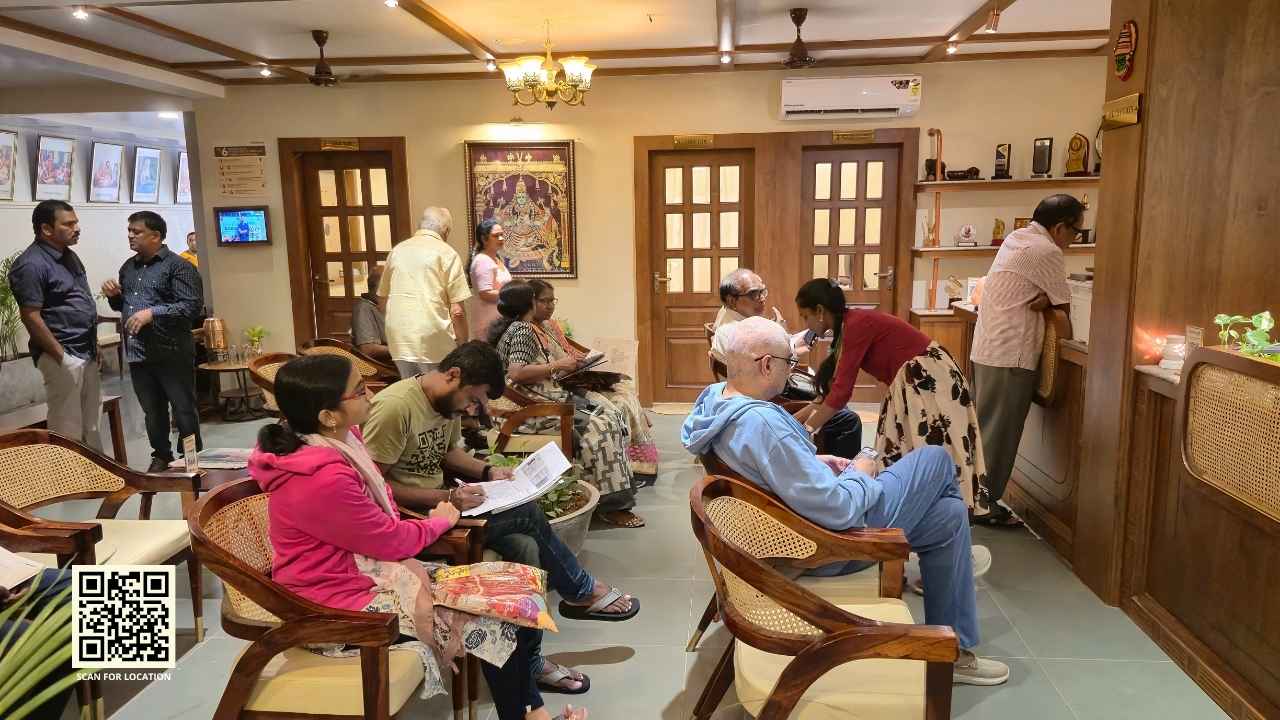Are you tired of living with muscle pain that disrupts your daily life? At Sai Ayush Ayurveda Hospital in Hyderabad, we offer Ayurveda muscle pain relief with natural remedies. Discover herbal oils, therapies & Panchakarma for lasting relief and better flexibility. and understand the debilitating effects of persistent discomfort. We are committed to helping you find natural relief.
With years of expertise in traditional Ayurvedic practices, our hospital offers a range of holistic treatments. These treatments are designed to soothe and heal. Our dedicated team is passionate about providing personalized care. We ensure that you receive the most effective solutions for your specific needs.
For appointments, treatment queries, or to request a price list, please don’t hesitate to contact us at Call / WhatsApp: 8142328080 or visit our website at www.saiayushayurveda.com.
Key Takeaways
- Discover natural and effective Ayurvedic remedies for muscle pain relief.
- Learn about the benefits of holistic treatments offered at Sai Ayush Ayurveda Hospital.
- Understand the importance of personalized care in treating muscle pain.
- Explore the range of traditional Ayurvedic practices available.
- Find out how to schedule an appointment or inquire about treatment options.
Understanding Muscle Pain from an Ayurvedic Perspective
Ayurveda sees muscle pain as a sign of an imbalance. It looks deeper than just the pain to find the real cause.
The Three Doshas and Their Relation to Muscle Pain
The three doshas – Vata, Pitta, and Kapha – are key in Ayurveda. They help keep our bodies healthy. But, when they’re out of balance, they can cause muscle pain.
Vata Imbalance and Muscle Stiffness
Vata imbalance often leads to stiff muscles. It causes dryness and irregular muscle movement. This results in stiffness and pain.
Pitta Imbalance and Inflammatory Pain
Pitta imbalance causes inflammatory pain. Too much Pitta leads to muscle heat and inflammation. This causes pain and discomfort.
Kapha Imbalance and Dull, Persistent Aches
Kapha imbalance results in dull, persistent muscle aches. This pain feels heavy and makes you feel tired.
Identifying Your Dosha Type and Pain Patterns
Knowing your dosha type and pain patterns is key for ayurveda muscle pain management. Figuring out if your pain is from Vata, Pitta, or Kapha helps tailor your treatment.
For personalized care, visit a trusted Ayurvedic center like Sai Ayush Ayurveda Hospital. They offer natural muscle pain relief ayurveda provides.
Common Causes of Muscle Pain According to Ayurveda
From an Ayurvedic view, muscle pain comes from many sources. These include lifestyle choices, what we eat, and stress levels. Knowing these causes helps in finding relief and preventing pain.
Lifestyle Factors Contributing to Muscle Discomfort
Lifestyle greatly affects muscle health. Things like how active we are, our posture, and daily habits all play a part.
Improper Posture and Movement Patterns
Bad posture and odd movement patterns can strain muscles. This leads to pain and discomfort. Ayurvedic treatment for sore muscles often starts with fixing these issues.
Overexertion and Physical Strain
Doing too much, whether through hard exercise or work, can hurt muscles. Ayurveda suggests finding a balance between activity and rest to avoid strain.
Dietary Influences on Muscle Health
What we eat is key to muscle health. Some foods can help or hurt inflammation and pain.
| Food Type | Ayurvedic Recommendation | Benefit |
|---|---|---|
| Anti-inflammatory Foods | Turmeric, Ginger | Reduces inflammation |
| Hydrating Foods | Coconut Water, Cucumbers | Maintains hydration |
Stress and Its Impact on Muscular Tension
Stress can make muscles tight. Ayurveda muscle relaxation techniques, like meditation and yoga, can help ease this tension.
For expert advice on managing muscle pain through Ayurvedic practices, consider consulting specialists at Sai Ayush Ayurveda Hospital.
Ayurveda Muscle Pain Relief: Principles and Approaches
Ayurvedic muscle pain relief focuses on balancing the body’s three doshas. This ancient Indian medicine sees muscle pain as a sign of a bigger body imbalance.
Holistic Assessment of Pain Patterns
Ayurvedic experts start by looking at a person’s health, history, and pain type. This holistic assessment finds the root causes of muscle pain. Causes can be doshic imbalances or toxin buildup.
Balancing Doshas for Muscle Comfort
Fixing the doshas—Vata, Pitta, and Kapha—is key in Ayurvedic muscle pain treatment. Experts suggest dietary changes, herbal remedies, and lifestyle adjustments. These are based on the person’s dosha and pain type.
The Role of Detoxification in Pain Management
Detoxing is vital in Ayurvedic pain care. It helps remove toxins (Ama) that cause pain and swelling.
Ama (Toxins) and Their Effect on Muscles
Ama blocks the body’s channels, causing pain, stiffness, and less mobility. Ayurvedic treatments aim to clear these toxins through cleansing.
Cleansing Protocols for Pain Reduction
Cleansing methods include Panchakarma, a deep detox program. Also, herbal teas and dietary changes help reduce Ama and ease pain.
For better pain management, check out Sai Ayush Ayurveda Hospital. They offer personalized treatments based on your unique needs and body type.
Powerful Ayurvedic Herbs for Muscle Pain Relief
Muscle pain can be managed with Ayurvedic herbs. These herbs have anti-inflammatory and restorative properties. At Sai Ayush Ayurveda Hospital, experts recommend herbs based on your condition.
Ashwagandha: The Strength Restorer
Ashwagandha is famous for boosting strength and vitality. It reduces muscle tension and inflammation. This makes it great for muscle pain relief.
Turmeric and Ginger: Natural Anti-inflammatories
Turmeric and Ginger are strong anti-inflammatory agents. They work together to lessen pain and swelling. Turmeric has curcumin, which fights inflammation well. Ginger improves blood flow and eases muscle soreness.
Preparation Methods for Maximum Efficacy
To get the most from Turmeric and Ginger, drink them as teas or add to meals. A common way is to boil the roots in water.
Dosage Guidelines for Pain Management
The right amount to take is 1-2 teaspoons of Turmeric or Ginger powder daily. This is usually enough for pain relief.

Nirgundi and Rasna: Specialized Pain-Relieving Herbs
Nirgundi and Rasna are special herbs for pain relief in Ayurveda. Nirgundi fights inflammation, and Rasna eases joint and muscle stiffness and pain.
Herbal Formulations and Combinations for Enhanced Relief
Ayurvedic experts mix these herbs to boost their benefits. For example, Ashwagandha with Turmeric offers both anti-inflammatory and restorative effects.
Adding Ayurvedic herbs to your daily routine can help a lot with muscle pain. At Sai Ayush Ayurveda Hospital, experts will help you choose the best herbs for your needs.
Therapeutic Ayurvedic Oils for Muscle Relaxation
In Ayurveda, certain oils are known for easing sore muscles and calming the mind. These oils have been used for ages to ease muscle pain and help relax.
Mahanarayan Oil: Benefits and Application
Mahanarayan Oil is a mix of herbs and oils made to ease muscle pain and stiffness. It includes Sesame oil, Eranda oil, and herbs. These work together to offer deep relief.
Dhanwantharam Thailam for Deep Tissue Relief
Dhanwantharam Thailam is a powerful oil for deep tissue relief in Ayurveda. It penetrates deep into muscle tissue, easing pain and swelling.
Customized Oil Formulations for Different Pain Types
Ayurvedic experts suggest tailored oil blends based on your dosha and pain type.
Warming Oils for Vata-Type Pain
- Mahanarayan Oil
- Dhanwantharam Thailam
Cooling Oils for Pitta-Type Inflammation
- Coconut oil with Neem and Guduchi
- Other cooling oils that fight inflammation
Stimulating Oils for Kapha-Type Stagnation
- Oils like Mustard oil and Eucalyptus oil for better circulation
- Herbal oils for detox and reducing stagnation
For a tailored oil treatment, check out Sai Ayush Ayurveda Hospital. Here, skilled practitioners offer personalized advice for your needs.
Ayurvedic Massage Techniques for Sore Muscles
Find relief from muscle tension with Ayurvedic massage techniques. This ancient practice relaxes muscles and rejuvenates mind and spirit. At Sai Ayush Ayurveda Hospital, we offer various Ayurvedic massage therapies for ayurvedic solutions for muscle discomfort.

Abhyanga: Full Body Oil Massage
Abhyanga is a traditional Ayurvedic full-body massage with warm herbal oils. It nourishes the skin, relaxes muscles, and boosts circulation. It’s great for muscle stiffness and pain.
Self-Massage Techniques for Daily Relief
You can do Abhyanga at home with simple self-massage techniques. Warm the oil and massage it into your skin in circular motions. Focus on tense areas, applying more pressure if needed. Regular self-massage can lessen muscle discomfort.
Professional Abhyanga at Sai Ayush Ayurveda Hospital
For a deeper experience, visit Sai Ayush Ayurveda Hospital for professional Abhyanga massage. Our experts will customize the massage for you, using oils and techniques for maximum relief. Discover the benefits of Ayurvedic massage at Sai Ayush Ayurveda Hospital.
Swedana: Therapeutic Sweating for Muscle Relief
Swedana is a powerful Ayurvedic therapy that induces sweat to remove toxins and relax muscles. It’s often paired with Abhyanga for better results. Swedana reduces muscle stiffness and boosts flexibility.
Marma Therapy for Targeted Pain Management
Marma Therapy focuses on vital points on the body to alleviate pain and enhance well-being. It’s great for targeted pain management.
Key Marma Points for Different Muscle Groups
Knowing the key Marma points helps target specific muscle groups. For example, certain points on arms and legs relieve tension and pain. Our practitioners at Sai Ayush Ayurveda Hospital are skilled in treating these points for the best results.
Adding these Ayurvedic massage techniques to your routine can greatly reduce muscle discomfort. Whether self-massage or professional therapy, ayurveda muscle relaxation techniques are a natural and effective way to soothe sore muscles.
Ayurvedic Dietary and Lifestyle Modifications for Long-term Muscle Health
Ayurvedic principles offer valuable insights into dietary and lifestyle adjustments for sustained muscle well-being. By incorporating these ancient practices, individuals can experience significant improvements in muscle health and overall quality of life.
Anti-inflammatory Foods for Muscle Recovery
An anti-inflammatory diet is key for muscle recovery. Foods rich in antioxidants and omega-3 fatty acids help reduce muscle inflammation and promote healing.
Dosha-Specific Dietary Recommendations
Understanding one’s dosha type is essential for tailoring dietary recommendations. For instance, individuals with a predominantly Vata constitution may benefit from warm, nourishing foods. Those with a Pitta type may require cooling foods to balance their energies.
| Dosha Type | Recommended Foods | Foods to Avoid |
|---|---|---|
| Vata | Warm, oily foods like ghee and sesame oil | Cold, dry foods like raw vegetables |
| Pitta | Cooling foods like cucumber and yogurt | Spicy, hot foods like chilies and garlic |
| Kapha | Light, dry foods like barley and green leafy vegetables | Heavy, oily foods like fried dishes and dairy |
Herbs and Spices to Include in Daily Cooking
Incorporating turmeric, ginger, and other anti-inflammatory herbs and spices into daily meals can significantly enhance muscle health. These ingredients not only add flavor but also provide therapeutic benefits.
Daily Routines (Dinacharya) for Muscle Strength
Establishing a consistent daily routine, or Dinacharya, is vital for maintaining muscle strength and overall health. This includes practices like early morning wake-up times, oil massage (Abhyanga), and regular exercise.
Yoga Postures for Muscle Flexibility and Pain Prevention
Yoga is an integral part of Ayurvedic practice for improving muscle flexibility and preventing pain. Specific postures can be tailored to individual needs, whether for acute pain relief or long-term strength.
Gentle Sequences for Acute Pain
For individuals experiencing acute muscle pain, gentle yoga sequences can provide relief. These may include restorative poses and slow, controlled movements.
Strengthening Practices for Prevention
To prevent future muscle pain, incorporating strengthening yoga practices can be highly beneficial. This includes poses that build core strength and improve flexibility.
Meditation and Breathing Exercises for Pain Reduction
Meditation and breathing exercises are powerful tools for reducing muscle pain. By calming the mind and regulating the breath, individuals can decrease stress and tension, leading to improved muscle health.
Specialized Ayurvedic Treatments at Sai Ayush Ayurveda Hospital
Sai Ayush Ayurveda Hospital is a leader in Ayurvedic medicine. It offers new treatments for sore muscles. The hospital uses traditional Ayurvedic methods to help people with muscle pain naturally.
Panchakarma Therapies for Chronic Muscle Pain
Panchakarma is key for chronic muscle pain. It’s a detox and rejuvenation program made for each person. This ensures a full healing approach.
Basti (Medicated Enema) for Lower Back Pain
Basti, or medicated enema, fights lower back pain. It uses herbal concoctions in the colon. This helps with pain and inflammation in the lower back.
Pizhichil (Oil Bath) for Overall Muscle Rejuvenation
Pizhichil, an oil bath therapy, rejuvenates muscles. Warm herbal oils are poured over the body. This nourishes muscles and helps relax.
Kati Basti for Targeted Back Pain Relief
Kati Basti targets the lower back. Warm oil is kept in a dough dam around the area. This gives focused relief from back pain.
Customized Treatment Plans Based on Individual Constitution
At Sai Ayush Ayurveda Hospital, treatments are tailored to each person’s Prakriti. This ensures the treatment works well and fixes the muscle pain’s root cause.
Success Stories and Patient Experiences
The hospital has many success stories. Patients have found lasting relief from muscle pain. This shows the effectiveness of the Ayurvedic therapies.
Treatment Packages and Programs Available
Sai Ayush Ayurveda Hospital has various treatment packages. They range from short-term relief to long-term wellness. There’s something for everyone.
For specialized Ayurvedic treatments, contact Sai Ayush Ayurveda Hospital. Experience Ayurveda’s healing power in a safe, caring environment.
Conclusion: Embracing Ayurvedic Wisdom for Pain-Free Living
Ayurvedic remedies help relieve muscle pain by balancing the body’s doshas. This approach focuses on overall well-being. Understanding muscle pain from an Ayurvedic view helps find effective relief.
Using Ayurvedic herbs, oils, and massage techniques can greatly help. Eating anti-inflammatory foods and following daily routines also supports muscle health.
If you’re looking for muscle pain relief, Sai Ayush Ayurveda Hospital has customized plans. Visit their website or contact them to learn more about ayurveda muscle pain relief.
FAQ
Q: What are the most effective Ayurvedic remedies for muscle pain relief?
For muscle pain relief, try herbs like Ashwagandha, Turmeric, and Ginger. Also, use oils like Mahanarayan Oil and Dhanwantharam Thailam. Treatments like Abhyanga, Swedana, and Marma Therapy can also help.
Q: How do I identify my dosha type and pain patterns?
Find out your dosha type by talking to an Ayurvedic practitioner. They’ll look at your health and tell you your dosha. To understand your pain, notice if it’s stiff, inflamed, or dull. This can show if it’s Vata, Pitta, or Kapha related.
Q: Can dietary changes help alleviate muscle pain according to Ayurveda?
Yes, changing what you eat can help with muscle pain. Eat foods that fight inflammation. Follow diets based on your dosha type. Add herbs and spices to your meals to help your muscles and reduce pain.
Q: What are some Ayurvedic lifestyle modifications that can help prevent muscle pain?
To prevent muscle pain, follow daily routines (Dinacharya) that strengthen your muscles. Do yoga to stay flexible and prevent pain. Also, meditate and practice breathing exercises to lower stress and tension.
Q: Are there any specialized Ayurvedic treatments available for chronic muscle pain?
Yes, there are treatments for chronic muscle pain. Try Panchakarma therapies like Basti, Pizhichil, and Kati Basti. These are tailored to your needs and can be found at places like Sai Ayush Ayurveda Hospital.
Q: How can I manage stress to reduce muscle tension?
To manage stress and reduce muscle tension, try meditation, breathing exercises, and yoga. Also, eat stress-reducing herbs like Ashwagandha. Relax with techniques like Abhyanga.
Q: What is the role of detoxification in Ayurvedic muscle pain relief?
Detoxification is key in Ayurvedic muscle pain relief. It removes Ama (toxins) from your body. Cleansing like Panchakarma can lessen pain and improve your overall health.
Discover the healing power of Ayurveda with our latest article at Sai Ayush Ayurveda Hospitals! Dive into the age-old wisdom that can rejuvenate your body and mind. Click here to read more:



0 Comments